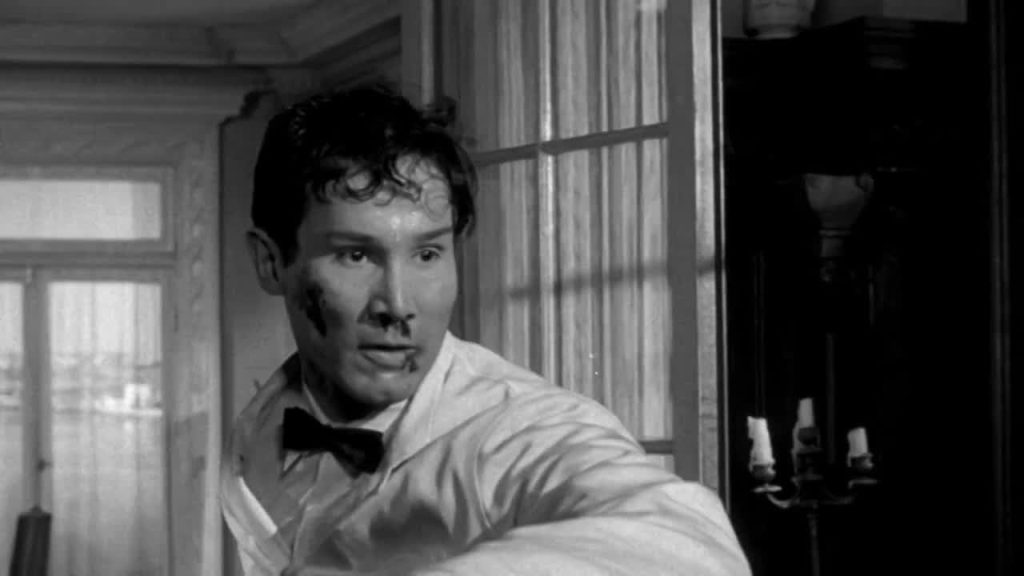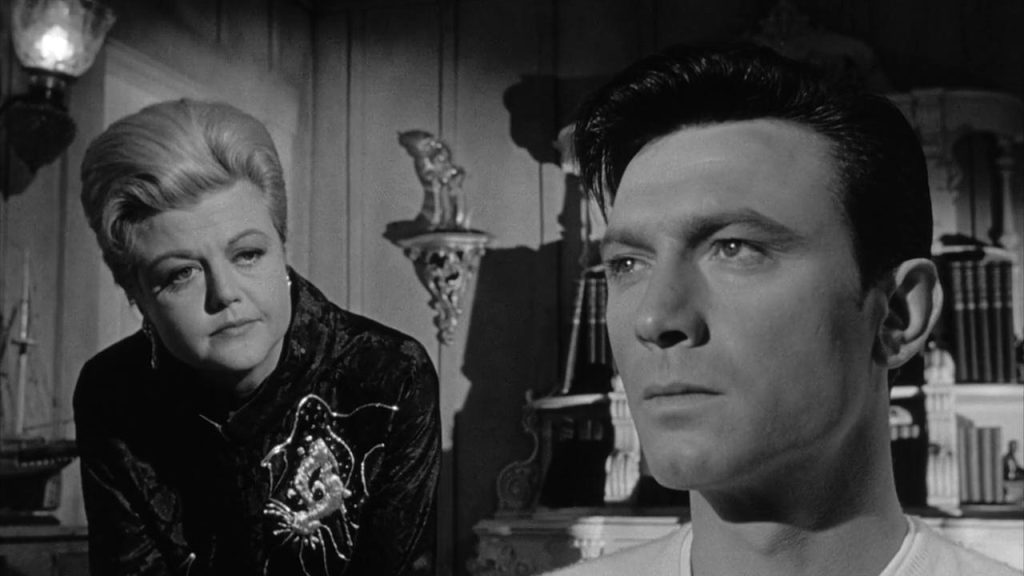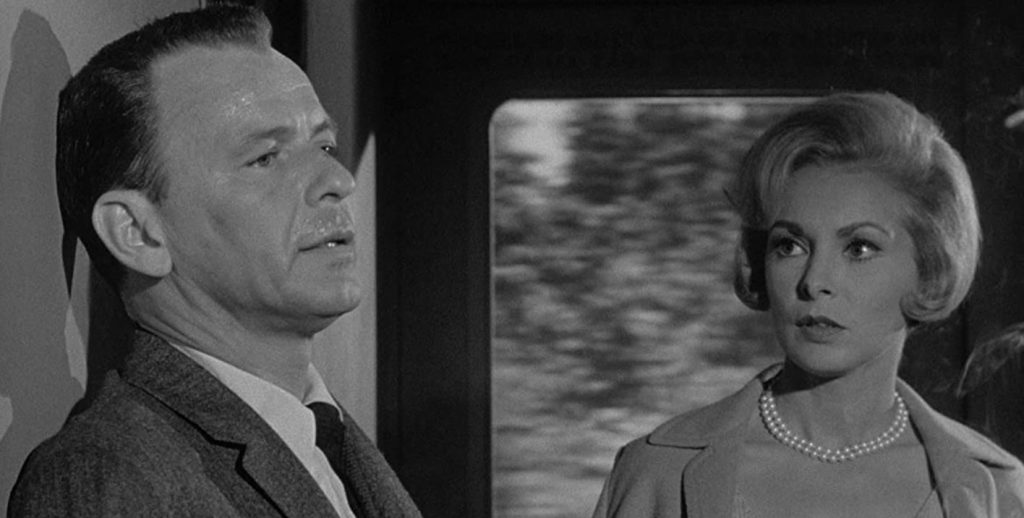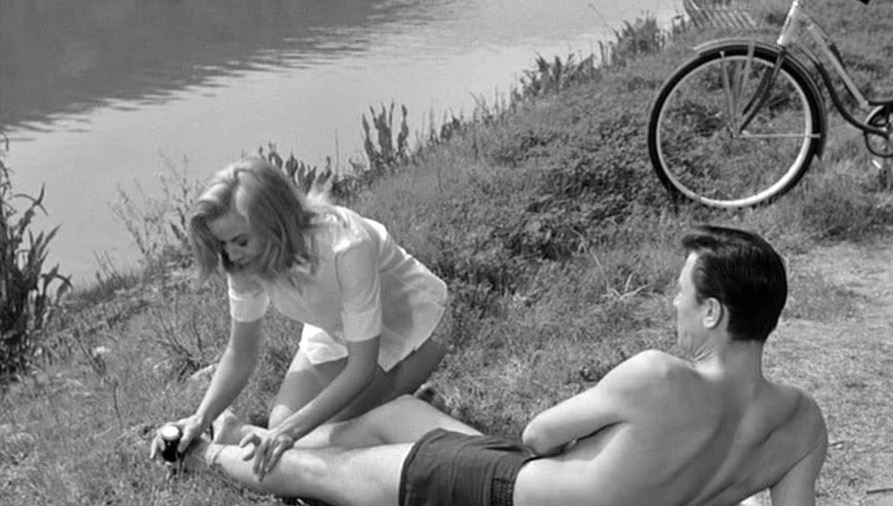The Manchurian Candidate is one of the most endlessly fascinating paranoid thrillers ever created. Beginning its life as a 1959 novel by Richard Condon, it was adapted into a classic 1962 film directed by John Frankenheimer, which was subsequently taken out of circulation for 24 years after the assassination of JFK. Despite this quarter of a century out of the spotlight, the strength of the narrative and the prescience of its satire made it hold up quite well as a 2004 remake by director Jonathan Demme, updated to the Gulf War and beyond. Despite its flaws (and largely because of one particular aspect that may or may not be a simple flaw), the original movie remains the gold standard of Cold War thrillers.
One of the more depressing reasons this classic still holds up so well over 60 years later is that the type of blustering bullshit and grandstanding used by Senator Johnny Iselin (James Gregory) and his puppet master and wife Eleanor Shaw (Angela Lansbury) is still an effective political strategy in the real world. The surreal atmosphere and shocking violence of the murders during the brainwashing sessions early in the movie also feel ahead of the time, as do the innovative press conference scene and the fight between Ben Marco (Frank Sinatra) and Chunjin (Henry Silva), the first karate fight ever seen in a Hollywood movie.

Another thing that keeps it so fresh after all these decades is the sly sense of humor at play throughout. “Always with a touch of humor,” Dr. Yen Lo (Khigh Dhiegh) tells his colleague, and it is indeed Yen Lo who provides much of this humor, some of it from the novel (the creative substitution of yak dung for tobacco in the captive soldiers’ cigarettes), some invented for the film (“Madame Yen has given me the most appalling list”). Johnny is another great source of humor; probably no joke in the movie is better than the cut from him dumping Heinz ketchup onto his steak (a vile habit of odious political figures then and now, it seems) to his speech firmly nailing down the known communist number as 57.
It could be argued that the very method used to activate the brainwashed assassin Raymond Shaw (Laurence Harvey) is a source of both intentional and unintentional humor. When he is accidentally activated at the bar and follows through on the command to go jump in a lake, this is both an important plot point and an obvious moment of intentional humor. The solitaire method itself and this implausible accident, not to mention the coincidence of Jocie (Leslie Parrish) wearing the Queen of Diamonds as a costume when she and Raymond reconnect and elope, are elements that strain credulity to the point where they threaten to make the whole thing terminally silly (and with less assured work by the cast and production team, likely would have).

The remake eliminates this method of activation in favor of a specific repetition of the subject’s full name, and with it all the implausible accidents and coincidences attending it, which is a wise choice for the more modern, gritty tone of that movie. As excellent and worthy as Demme’s version is, though, it lacks much of the surreal and satirical humor that helps to make the original so memorable. Another element the 2004 film revises, providing a more conclusive take than the maddening possibilities introduced (intentionally or not) in the original, is the role of one Eugenie Rose Cheyney (Janet Leigh).
Ben first meets Rosie (as she generally prefers to be called; it’s a whole thing) just after being relieved of duty by his commanding officer. Significantly, Colonel Milt (Douglas Henderson) literally orders Ben to take some time off and “go find yourself a girl.” In the very next scene, separated only by an establishing shot of the moving train on which they meet, Rosie appears as if out of nowhere (due to the way the opening of the scene is edited, it is unclear at first where she is in relation to Ben) and soon after begins a conversation with him so memorably strange it has inspired some of the wildest and most interesting speculation of any movie of its era.
The main thing that stands out from the very beginning of the scene is how full the dialogue is of non sequiturs and apparent subject changes. “Maryland’s a beautiful state,” Rosie begins, to which Ben replies, without looking at her, “This is Delaware.”
“I know,” Rosie replies, every bit deadpan. “I was one of the original Chinese workmen who laid the track on this stretch. But nonetheless, Maryland is a beautiful state. So is Ohio, for that matter.”

Already what we have here is either an Abbott and Costello routine that isn’t landing (due to his distressed nervous and mental state, Ben seems barely able to register her rather dry attempts at humor), or the kind of coded spy jargon modern audiences are so accustomed to seeing by this point that it borders on parody (“The eagle flies at midnight.” “Its wings are black and crimson,” or whatever). The fact that Rosie mentions “Chinese workmen” in her second one-liner adds to the intrinsic suspiciousness of the exchange, considering the titular region in which the brainwashing occurred, and when Ben replies with “Columbus is a tremendous football town,” of all things, it is easy to see why this scene has led to rampant speculation about the true nature and extent of Ben’s brainwashing, and the possibility that Rosie is involved.
The conversation continues in this manner, with more odd jokes from Rosie being met with blank inattentiveness from Ben, who responds in a sort of robotic, almost involuntary way, as if reacting to key phrases as he has been programmed to; or is he just preoccupied because of the dreams he’s been having and his fears for his own sanity? There are references to other specific geographical places in the United States (New Hampshire, Lake Francis), and Rosie insists on repeating her phone number and address to this man she has just met, making sure he has them memorized. One can’t help but be reminded of how Ben and other soldiers have been programmed to repeat the phrase, “Raymond Shaw is the kindest, bravest, warmest, most wonderful human being I’ve ever known in my life.”
One of the strangest parts of the conversation, initiated by Ben, is the question “Are you Arabic?” All of the dialogue in this scene, including this line, is taken directly from the novel, in which Rosie is described as looking quite different from Janet Leigh, with a “Semitic nose,” olive skin and prematurely white hair “the color of birch bark.” She reminds Ben of a “Tuareg woman,” and he actually goes off on a page-long monologue about it that failed to make it into the movie. By cutting all that material but keeping the question and her follow-up (“Are you Arabic? Let me put it another way. Are you married?”) the filmmakers have effectively made the dialogue seem like some mysterious code.
Rosie’s repetition of her phone number (“ELdorado 5-9970”) sounds even more like spy jargon to modern audiences, who also might be incredulous at the development that Rosie has broken up with her fiancee immediately after meeting Ben. Without the advantage of meeting the fiancee himself, as we do in the book, this comes across like the kind of bullshit she might feed Ben if she were some sort of covert agent. Or perhaps both Rosie and Ben have been brainwashed and programmed to activate each other, and Rosie has in fact gone through with her programming to ditch the other guy so she can be with Ben.
To what end, though? In the novel, Rosie’s ex is an FBI man who ends up helping Ben with his investigation and effort to stop the conspiracy, along with Rosie. The 2004 film version reveals that Rosie herself (Kimberly Elise) is a federal agent who is part of a “shadow unit” that has been secretly monitoring Ben (Denzel Washington) and trying to “sort this thing out” (this version dispenses with the jilted fiancee along with most of the other strangeness in the train scene, though the expansion of the Rosie character is almost certainly inspired by this sort of speculation). In the 1962 film, though, there is never any definite revelation that Rosie has been anything other than a romantic interest for Ben, and if she has had some secret role in the way things play out, it is unclear how or why.

The answer may just lie in the storyline of Raymond’s doomed romance with Jocie, and how Marco becomes involved in it. Harvey is really great in the role, perfectly conveying the haughty contempt that make Raymond so unlikeable to nearly all who know him, but also convincingly portraying those rare times when he could be loveable. The scene in which he very solemnly asks Senator Jordan (John McGiver) for his approval to marry Jocie the day he meets her is a delight, and the fact his proposal is met with a burst of incredulous laughter all around shows that, even in times past, Rosie’s abrupt dumping of her fiancee is perhaps more than a little suspect.
Raymond does indeed become more loveable around Jocie, as we see in his touching moment of surprised joy when he makes his first joke (“Gaucho Marx”) and his observation that the types of people “who walk into a room and automatically turn the television on, and those who walk into a room and automatically turn the television off” usually end up marrying each other (both inventions of the terrific screenplay by Frankenheimer and George Axelrod). This contrasts sharply with his robotic behavior in the brilliantly conceived and executed scene in which he assassinates Senator Jordan, shooting him through a milk carton in a moment that must have inspired the murder of the foster dad in Terminator 2.
When Ben discovers that Raymond has killed the Senator and Jocie, he laments to Rosie that “it wasn’t Raymond that really did it. In a way it was me.” This could in fact be the mysterious purpose Rosie serves in the narrative! Ben is determined to help Raymond and prevent the terrible things he knows Raymond may have been programmed to do. He knows that time is of the essence but he sees how in love Raymond is, how loveable he has become because of Jocie, and he cannot help but let him go and have his honeymoon. During that time when Raymond is out of Ben’s control, he is programmed to kill, and what exactly has happened to get in the way of Ben’s determination to stop this? He is swayed by the power of love because he has been programmed to feel it himself, for Rosie.

Though we get nothing of Ben’s previous romantic life in the movie, in the novel he is quite the lady-killer before he meets Rosie, living with Raymond in New York and effortlessly picking up three or four women a day off the street to bring them back for drunken orgies (I am not making this up) at Raymond’s apartment. Perhaps Rosie’s role, then, is to brainwash the inveterate pussy-hound into believing in “true love,” so that he will fail to stop the evil plan. In this version, Rosie is not an agent of the good out to help Ben, but just the slyest part of the evil plot; not a counteragent at all, but working with the Commies! An unnecessarily convoluted plan, to be sure, but so is the whole brainwashing and solitaire method.
“Made to commit acts too unspeakable to be cited here, by an enemy who had captured his mind and soul, he freed himself at last, and in the end heroically and unhesitatingly gave his life to save his country.”
With this extemporaneous (or possibly programmed???) eulogy after Raymond’s double-murder/suicide, Ben effectively closes the file on the whole case, and maybe that was what he has been programmed to do all along, ever since the brain “dry-cleaning” sessions in Manchuria. In the 2004 version, the extent of Ben’s brainwashing is expanded in a logical way, as he uncovers the memory that he too killed a fellow soldier in the Manchurian session, and is subsequently activated and programmed to kill again by Senator Eleanor Shaw (Meryl Streep). In the 1962 version and the novel, Ben’s purpose in the nefarious plot is to ensure that Raymond wins the Medal of Honor, but maybe his backup function in the case that the original assassin “fails” (as Raymond does) is to tie up loose ends and keep the people who are really in control, the ones in charge of even Eleanor Shaw and her Commie co-conspirators, from being revealed.
And maybe, just maybe… Rosie herself is the one really in charge of it all???
Far-fetched as fuck, I know, but ain’t it fun to speculate?